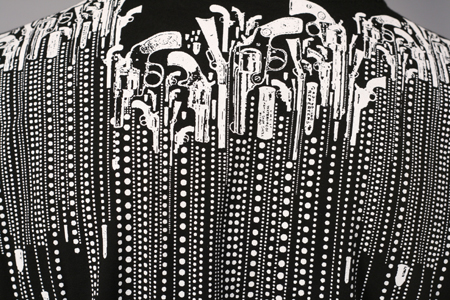
HAVANA, Cuba (CNN) -- Fidel Castro announced his resignation as president of Cuba and commander in chief of Cuba's military Tuesday, according to a letter published in the state-run newspaper, Granma.
The resignation ends nearly a half-century of iron-fisted rule that inspired revolutionaries but frustrated 10 U.S. presidents.
Deputy Secretary of State John Negroponte said the U.S. embargo on Cuba will not be lifted in the near term.
Castro revealed his plans without notice by publishing a letter in the middle of the night in state-run newspaper Granma.
"I will not aspire to, nor will I accept the position of president of the council of state and commander in chief," Castro wrote. "I wish only to fight as a soldier of ideas. ... Perhaps my voice will be heard."
President Bush said Castro's decision ought to spark "a democratic transition" for Cuba.
"The international community should work with the Cuban people to begin to build institutions that are necessary for democracy and eventually this transition ought to lead to free and fair elections," Bush said Tuesday in Rwanda. "The United States will help the people of Cuba realize the blessings of liberty." Video Watch Bush's reaction to Castro's resignation »
Castro received treatment for intestinal problems two years ago and cited his "critical health condition" in the letter published Tuesday. He said "it would be a betrayal to my conscience to accept a responsibility requiring more mobility and dedication than I am physically able to offer."
He also said he realized that he had a duty to prepare Cubans for his absence.
"My wishes have always been to discharge my duties to my last breath," he said. "That's all I can offer."
Cuba's leaders plan to elect a president within days. Castro's brother, Raúl, the country's defense minister, has been named publicly as his successor.
Castro, 81, captured the world's attention at the age of 32, when he led a band of guerrillas who overthrew a corrupt dictatorship in 1959. He went on to become a thorn in Washington's side by embracing communism and cozying up to the Soviet Union.
Castro reigned in Havana with an iron hand, defying a punishing U.S. economic embargo intended to dislodge him. Video Watch what Castro's resignation means for Cuba »
Castro received treatment for intestinal problems in 2006 and transferred many powers to Raúl, who is generally seen as more pragmatic.








1 koment:
I just think it's ironic that American Government put him in power...I wonder what will happen next in our relationship with Cuba
Posto një koment